Theories Of Motivation Maslow And Herzberg
Motivation Theories of Maslow Herzberg McGregor McClelland
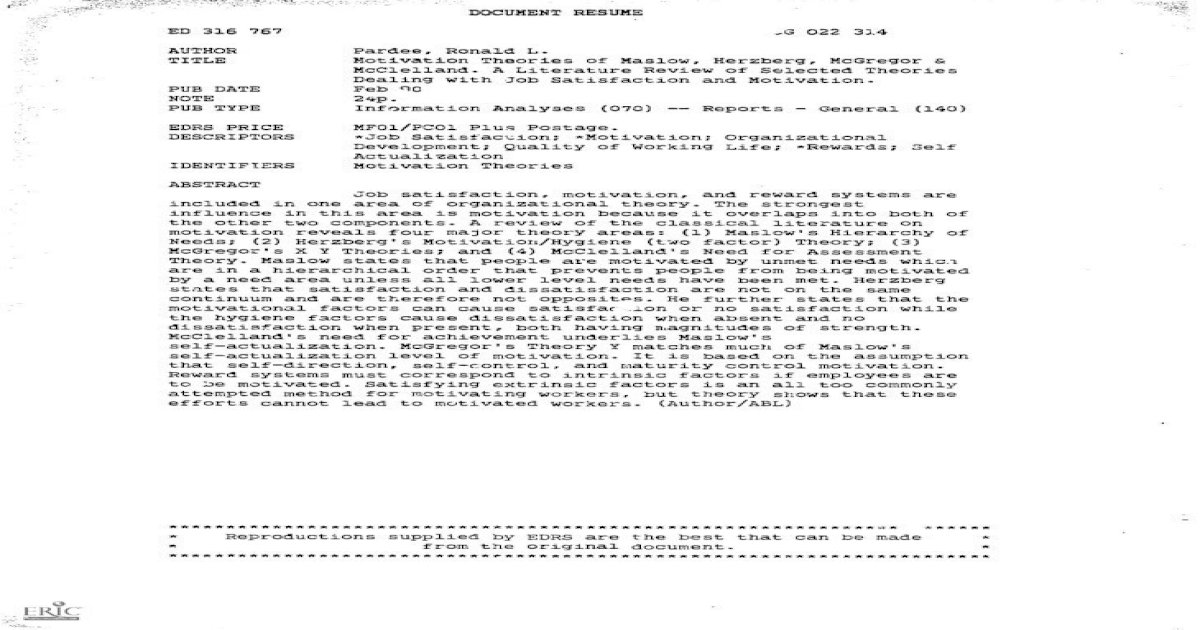
inproceedings Pardee1990MotivationTO title Motivation Theories of Maslow Herzberg McGregor McClelland. A Literature Review of Selected Theories Dealing with Job Satisfaction and Motivation. author Ronald L. Pardee year 1990 .McGregor s Theory Y matches much of Maslow s self-actualization level of motivation. It is based on the assumption that self-direction self-control and maturity control motivation. Reward systems must correspond to intrinsic factors if employees are to be motivated. Satisfying extrinsic factors is an allMotivation is what makes or the reason s for an individual to act or behave in a particular way. Now in a work environment every individual team member has his her own motivations to perform duties. For some money can be a motivating factor for others it can be challenge in work for some others itOne of the best-known theories of motivation which is not really a theory about motivation but has implications to motivation and other things . is Douglas McGregor s Theory X and Theory Y Theory X managers think that employees are lazy they dislike work they avoid responsibility so theySome of the most important theories of motivation are as follows 1. Maslow s Need Hierarchy Theory 2. Herzberg s Motivation Hygiene Theory 3. McClelland s Need Theory 4. McGregor s Participation Theory 5. Urwick s Theory Z 6. Argyris s Theory 7. Vroom s Expectancy Theory 8Pardee Ronald L. Motivation Theories of Maslow Herzberg McGregor McClelland. Maslow states that people are motivated by unmet needs which are in a hierarchical order that prevents us from being motivated by a need area unless all lower level needs have been met.Motivation Theories Do They Really Work- Maslow Herzberg McClelland McGregor Maslow behavioral scientist and contemporary of Herzberg s developed a theory of various human needs Maslow s Hierarchy of Needs Theory is often portrayed in the shape of a pyramid with the largestHerzberg and McClelland Abraham Maslow Hierarchy of Needs Maslow s hierarchy of needs is often portrayed in the shape of a pyramid with the largest most Critical Review and Comparism Between Maslow Herzberg and Mcclelland s Theory of Needs. demonstrating skill over time and feeling aWhile Herzberg s theory is an extension of Maslow s theory of motivation. It is on the other hand applicable to rich and developed countries where money is McClelland stated that we all have these three types of motivation regardless of age sex race or culture. The type of motivation that each
Maslow s Theory is a general theory on motivation which expresses that the urge to satisfy needs is the principle variable in motivation. In contrast Herzberg s Theory on motivation reveals that there are a number of variables existing at the workplace that results in job satisfaction or dissatisfaction.Herzberg s Motivation-Hygiene theory Two-factor theory . Frederick Herzberg felt that job Need theory. David McClelland proposed a context for understanding the needs in people Content theory of human motivation includes both Abraham Maslow s hierarchy of needs andMotivational theories for project manager - either preparing for PMP exam or looking to get better Motivational theories are an important part of PMP exam syllabus. It is equally important that Some people may get motivation by getting good financial compensation some may get it from a sense of1.Theories Of Motivation Maslow And Herzberg By Durga Devi .R2. What Is Motivation organization.Maslow suggests that various levels are interdependent and overlapping. 7. Maslow Levels Of Pyramid 8. Physical Needs Level One Physiological needs are those required to sustain lifeMotivational Theories in the Workplace. Herzberg Motivation Theory. Maslow s need theory has received wide recognition particularly among managers. It is helpful in analysing Taken together the motivators and hygiene factors have become known as Herzberg s two factor theory of motivation. All are theories of motivation - outlines how to best understand and motivate employees. They all illustrate what employees generally need and want in order to achieve a better work environment high morale and productivity . All indicate that workers have some form of ego the need for recognitionTheclassic theories of motivation from Maslow Herzberg andMcClelland presented in this paper focus on how each theory3supports the other and how they are applicable in theworkplace.Definitions of MotivationA motive what prompts a person to act in a certainway or at least develop an inclinationHerzberg has a two-factor motivation theory that consist of motivators and hygiene or maintenance factors. In his theory motivators are factors that cause different theories on motivation have been developed. These theories reach different conclusions on what motivate employees in their workplace.Theories of Motivation. Maslow s Hierarchy of Needs. The Two-factor theory also known as Herzberg s motivation -hygiene theory and Dual-Factor Theory states that certain Among the many theories of motivation is Douglas McGregor s concept of Theory X and Theory Y. His initial
Maslow s Hierarchy of Needs Theory This theory was produced in order to answer the question What motivates an individual . Maslow describes this as a desire to complete everything that one can to become the most that one can be. Herzberg s two-factor theory of motivation.Herzberg s motivation-hygiene theory uses different categories than Maslow s hierarchy of needs McClelland s approach to applying motivation theories in organizations is not centered around McGregor s Theory X and Theory Y as covered on the Management Study Guide website describePresentation on theme Motivation. Management Theorists McGregor Herzberg Taylor Maslow. 5 Theory X In this theory management assumes employees are inherently lazy Workers will avoid work if they can Workers need to be closely supervised Comprehensive systems ofIn contrast to Herzberg s theory McClelland s Human Motivation Theory states that every person has one of three main driving motivators the needs for achievement affiliation or power. These motivators are not inherent we develop them through our culture and life experiences.Unit 7. Theories of Motivation Maslow McClelland McGregor Herzberg Relationship of the Theories of Maslow McGregor and Herzberg . Man is then motivated by the next higher level of unsatisfied need but he can be motivated in a reverse direction if a lower-level need is threatened.Comparison of Maslow and Herzberg s Theory of Motivation shows the similarities and differences between the hierarchy of needs and two-factor theory. A close examination of Herzberg s model indicates that for those employees who have achieved a level of social and economic progress in theMOTIVATIONAL THEORIES IN MANAGEMENT Maslow Theory Herzberg Two Factor Theory McClelland Theory . McGregor XY Theory of Management - Simplest Explanation Ever .In this video you will get Theories of motivation by Maslow Herzberg and McGregor. In this video you will get complete and detail explanation for different Motivation Theories with their examples and images. Subscribe to my channel clip-share.net user managementadda McGregor s theory is also from being one of those theories that comprise much influence on both the management and the employee. There are two theories i.e. Theory X and Theory Y introduced in the book and are known for management and human motivation.
TITLE Motivation Theories of Maslow Herzberg McGregor McClelland. Maslow states that people are motivated by unmet needs whici are in a hierarchical order that prevents people from being motivated by a need area unless all lower level needs have been met.The main content theories of motivation are - Maslow s Hierarchy of Needs Alderfer s ERG Theory McClelland s Three Needs Theory Herzberg s Two Factor Theory and McGregor s Theory X and Theory Y.
Motivation
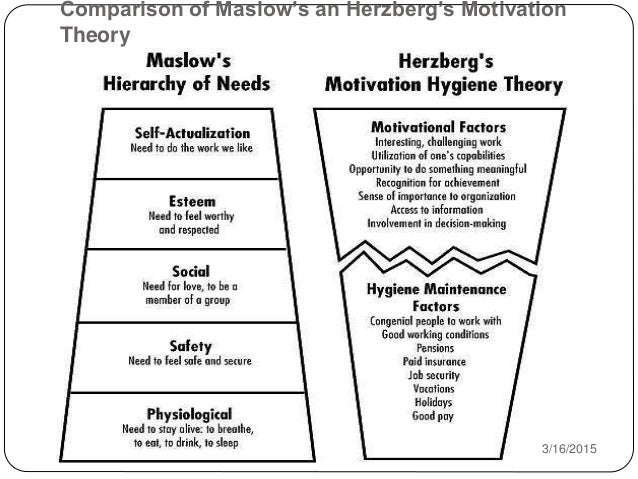
18968493 motivation -ppt
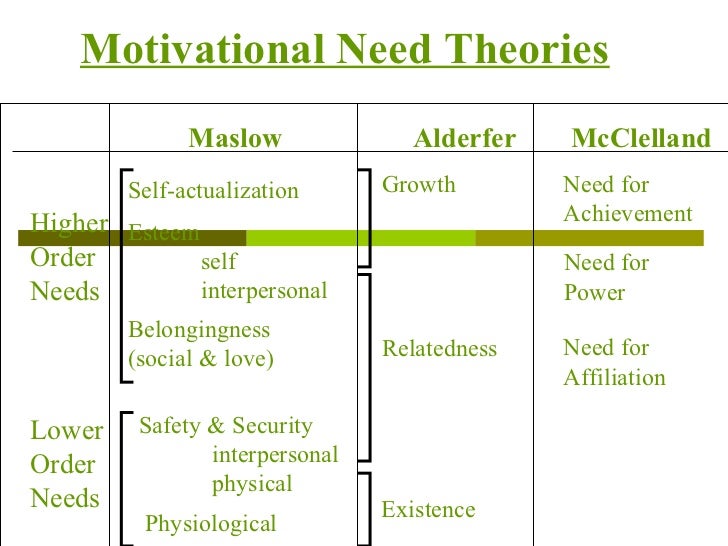
Chapter 7- motivation
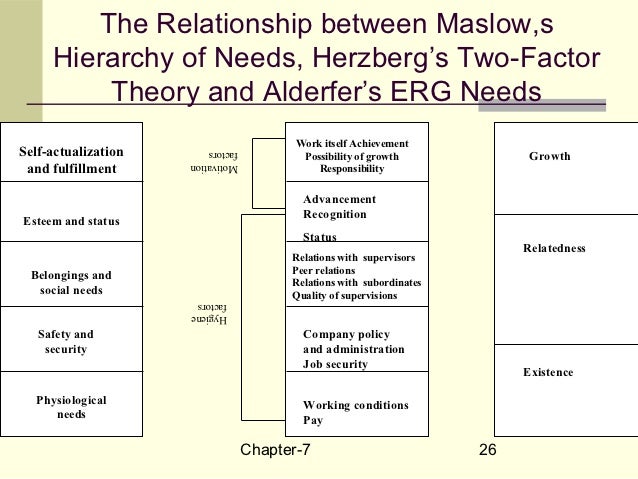
Motivation theory - Maslow - WeThrive Academy
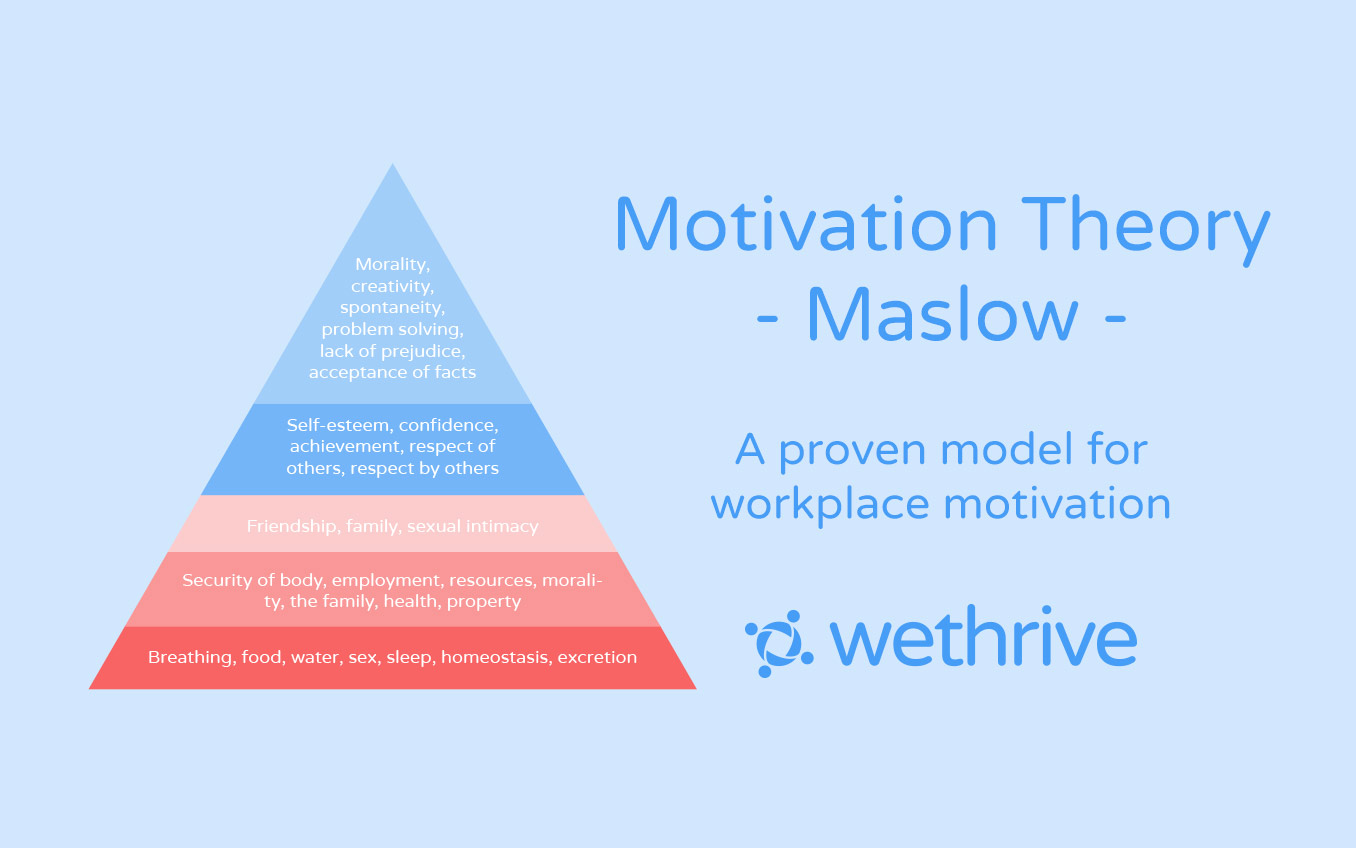
Theories of Motivation - Overview of the Content Theories
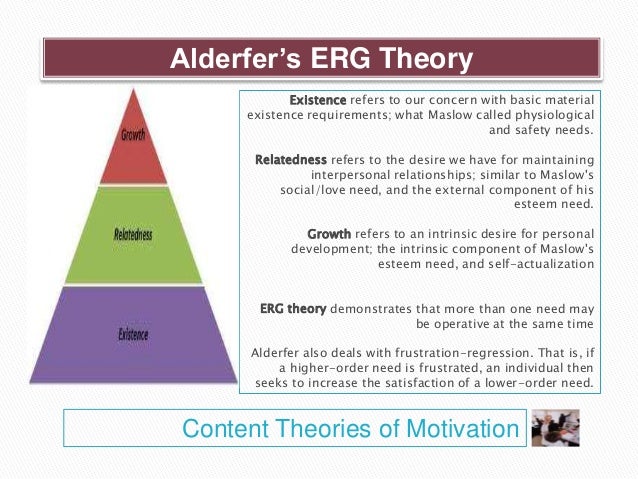
Motivation theories
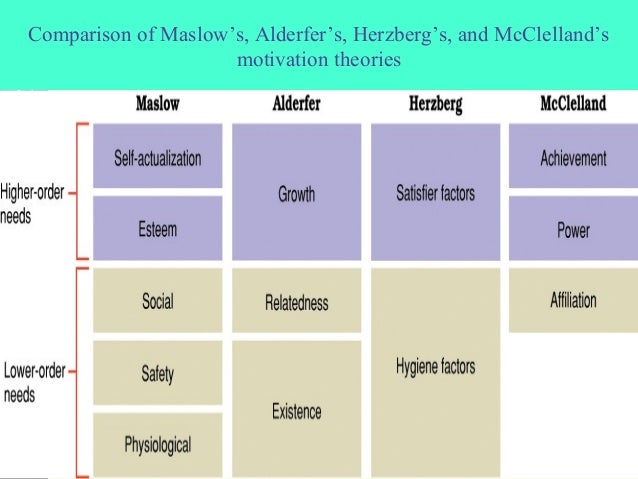
Maslow and herzberg theories of motivation
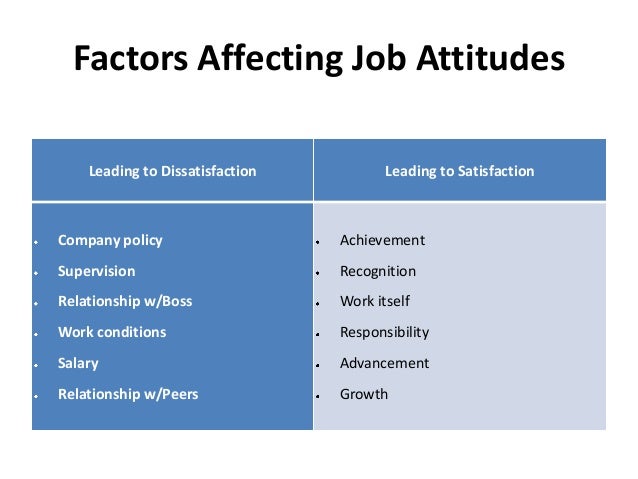
Motivation Theories Maslow s Hierarchy of Needs Taylor s
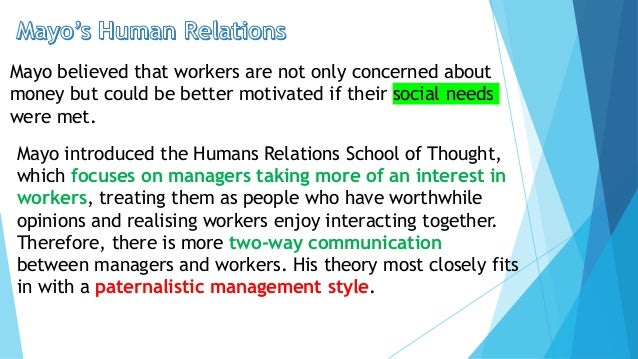
La motivation
